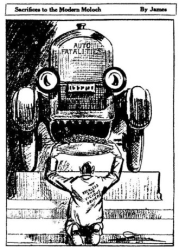The following hymn, which gained popularity during the 1870’s, was written by Elizabeth Prentiss after two of her children died suddenly of illness in 1856.
Elizabeth, struggling with thoughts of God’s unfairness and in profound grief, was told by her husband that, “Love can keep the soul from going blind.” Understanding that God is love, and seeing that increased devotion toward him was the solution to her grief, she penned the following verses that would become part of the widely published hymn, “More Love to Thee.”
Once earthly joy I craved,
Sought peace and rest;
Now Thee alone I seek,
Give what is best;
This all my prayer shall be:
More love, O Christ, to Thee,
More love to Thee,
More love to Thee!
Let sorrow do its work,
Send grief and pain,
Sweet are Thy messengers,
Sweet their refrain.
When they can sing with me:
More love, O Christ, to Thee,
More love to Thee,
More love to Thee!
I have been asking the Lord to draw me closer to him, but secretly hoping that it would not involve stress, pain, or struggle. Shortly before reading the above hymn, I read in Hebrews 12:5-11 the following instructions:
And you have forgotten the exhortation which speaks to you as to sons:
‘My son, do not despise the chastening of the Lord, Nor be discouraged when you are rebuked by Him; For whom the Lord loves He chastens, And scourges every son whom He receives.’
If you endure chastening, God deals with you as with sons; for what son is there whom a father does not chasten? But if you are without chastening, of which all have become partakers, then you are illegitimate and not sons. Furthermore, we have had human fathers who corrected us, and we paid them respect. Shall we not much more readily be in subjection to the Father of spirits and live? For they indeed for a few days chastened us as seemed best to them, but He for our profit, that we may be partakers of His holiness. Now no chastening seems to be joyful for the present, but painful; nevertheless, afterward it yields the peaceable fruit of righteousness to those who have been trained by it.
Possibly the Lord is preparing me for chastening, or considering my recent discouragement, helping me through it. Verses 12-13 follow with this encouragement:
Therefore strengthen the hands which hang down, and the feeble knees, and make straight paths for your feet, so that what is lame may not be dislocated, but rather be healed.
